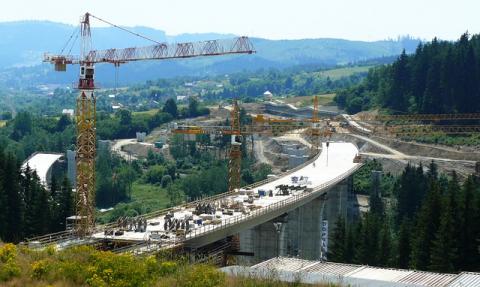
Region: North America (NA)
Country: United States
Sector: Transportation
Keywords: Knowledge Lab ***, Transport, Highway, Risk, Concession
Document Link(s):
Document(s):
Document Summary:
This discussion paper was developed for transportation professionals who may be involved in a Public-Private Partnership (P3) concession project. P3 concessions are an integrated service delivery approach where a public transportation agency enters a contractual agreement with a private sector entity to deliver a service and/or facility for a specific period. Under the P3 approach, the private sector entity is singly responsible for the design, construction, finance, operations and maintenance of facilities for a specified concession period. During the last decade, several U.S. P3s experienced significant financial stress requiring restructuring. Lately, some private concessionaires have avoided revenue risk P3s, preferring those in which public agencies assume all the revenue risk, typically through availability payments. To ensure robust private participation in U.S. P3s – and explore whether there is a “middle ground” between availability payment and revenue risk toll P3s –this paper seeks to foster a discussion about revenue risk sharing. The discussion paper evaluates revenue risk sharing mechanisms from both the public and private sector perspectives, applying four criteria -- value for money, fiscal impacts, financeability and ease of implementation. The discussion paper was developed based on existing literature, interviews with over 25 P3 market participants, and analysis of cases in the U.S. and internationally.
Document Details:
On July 17, 2014, the Build America Investment Initiative was implemented as a government-wide effort to increase infrastructure investment and economic growth. As part of that effort, the U.S. Department of Transportation (USDO T) established the Build America Transportation Investment Center (BA TIC). The BA TIC helped public and private project sponsors better understand and utilize public-private partnerships (P3s) and provided assistance to sponsors seeking to navigate the regulatory and credit processes and programs within the Department. In December 2015, the Fixing America’s Surface Transportation Act (FAST Act) was enacted, which directed USDOT to establish a National Surface Transportation Infrastructure Finance Bureau, which was renamed the Build America Bureau (the Bureau).
Building upon the work of the BATIC, the Bureau was established in July 2016 as USDOT’s go-to organization to help project sponsors who are seeking to use Federal financing tools to develop, finance and deliver transportation infrastructure projects. The Bureau serves as the single point of contact to help navigate the often complex process of project development, identify and secure financing, and obtain technical assistance for project sponsors, including assistance in P3s. The Bureau replaces the BATIC and is now home to DOT’s credit programs, including Transportation Infrastructure Finance and Innovation Act (TIFIA), the Railroad Rehabilitation and Improvement Financing (RRIF) and Private Activity Bonds (PAB). The Bureau also houses the newly-established FASTLANE grant program and offers technical expertise in areas such as P3s, transit oriented development and environmental review and permitting. The Bureau is also tasked with streamlining the credit and grant funding processes and providing enhanced technical assistance and encouraging innovative best practices in project planning, financing, P3s, project delivery, and monitoring.
Working through the Bureau, USDOT has made significant progress in its work to assist project sponsors in evaluating the feasibility of P3s, and helping simplify their implementation. In response to requirements under the Moving Ahead for Progress in the 21st Century Act (MAP-21) and the FAST Act to develop best practices and tools for P3s, the Bureau, jointly with FHWA, is publishing this report on U.S. highway P3 concessions.
Updated: April 12, 2022